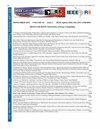Predictive Performance of Machine Learning Algorithms Regarding Obesity Levels Based on Physical Activity and Nutritional Habits: A Comprehensive Analysis
IF 1.3
4区 工程技术
Q3 COMPUTER SCIENCE, INFORMATION SYSTEMS
引用次数: 0
Abstract
Obesity is a complex chronic disease resulting from the interaction of multiple behavioral factors. This paper presentsthe application of Machine Learning to identify the primary groups of behaviors contributing to the development of obesity.Supervised machine learning emphasizes decision trees and deep artificial neural networks from datasets. The study also references related work that utilizes predictive methods to estimate obesity levels based on physical activity and dietary habits. Furthermore,it compares the performance of classification algorithms such as J48, Naive Bayes, Multiclass Classification, Multilayer Perceptron, KNN, and decision trees when predicting diabetes cases. The objective is to analyze different tools in the assessment based on physical activity and dietary habits, contributing to the improvement of obesity risk diagnosis. In addition, MLP and J48 demonstrated strong performance among all the algorithms, but BPTT achieved the highest overall performance.基于体育活动和营养习惯的机器学习算法对肥胖程度的预测性能:综合分析
肥胖症是一种复杂的慢性疾病,是多种行为因素相互作用的结果。本文介绍了机器学习在识别导致肥胖症发生的主要行为组方面的应用。有监督的机器学习强调数据集中的决策树和深度人工神经网络。该研究还参考了利用预测方法根据体育锻炼和饮食习惯估计肥胖程度的相关工作。此外,研究还比较了 J48、Naive Bayes、多类分类、多层感知器、KNN 和决策树等分类算法在预测糖尿病病例时的性能。目的是分析基于体育锻炼和饮食习惯的评估中的不同工具,为改善肥胖风险诊断做出贡献。此外,在所有算法中,MLP 和 J48 表现出强劲的性能,但 BPTT 的总体性能最高。
本文章由计算机程序翻译,如有差异,请以英文原文为准。
求助全文
约1分钟内获得全文
求助全文
来源期刊

IEEE Latin America Transactions
COMPUTER SCIENCE, INFORMATION SYSTEMS-ENGINEERING, ELECTRICAL & ELECTRONIC
CiteScore
3.50
自引率
7.70%
发文量
192
审稿时长
3-8 weeks
期刊介绍:
IEEE Latin America Transactions (IEEE LATAM) is an interdisciplinary journal focused on the dissemination of original and quality research papers / review articles in Spanish and Portuguese of emerging topics in three main areas: Computing, Electric Energy and Electronics. Some of the sub-areas of the journal are, but not limited to: Automatic control, communications, instrumentation, artificial intelligence, power and industrial electronics, fault diagnosis and detection, transportation electrification, internet of things, electrical machines, circuits and systems, biomedicine and biomedical / haptic applications, secure communications, robotics, sensors and actuators, computer networks, smart grids, among others.
 求助内容:
求助内容: 应助结果提醒方式:
应助结果提醒方式:


